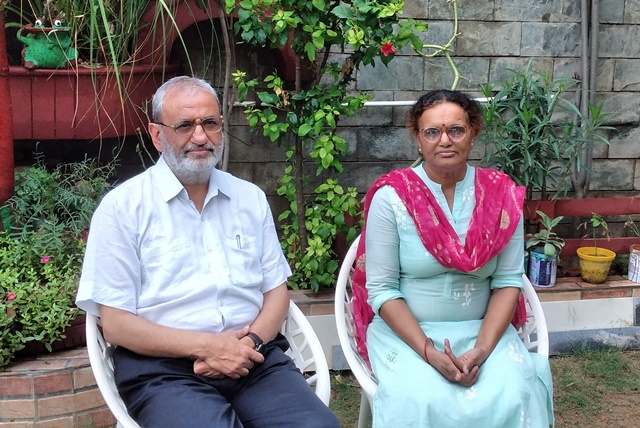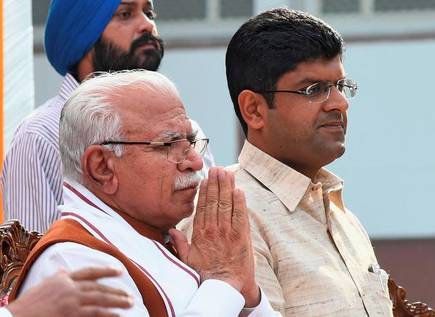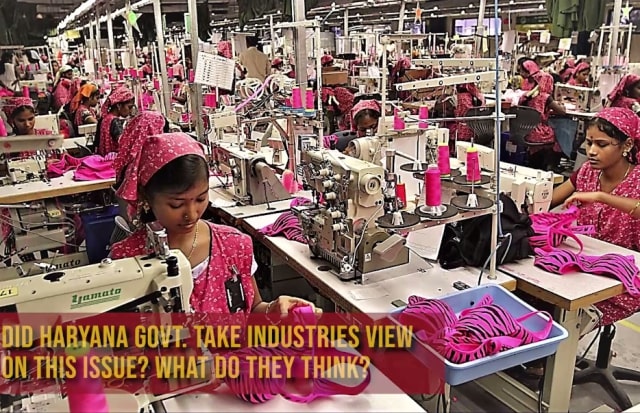Sunita Tyagi, a retired academic, and Dr CD Sharma, a physician, from Haryana speak on the likely impact of the women wrestlers’ protest on the upcoming Haryana elections. Their views:
The peaceful and difficult struggle by our world champion women wrestlers, and against all odds, has sent multiple, positive messages. Their himmat and big heart has sent a message of hope to ordinary women and girls in Haryana and across the country. Their struggle is quite unprecedented, given the status of women in Haryana. They have truly shown the way.
People in Haryana, which is their home state, and especially women, feel a deeper linkage with them. However, women did not join the protests as much as was expected. Even men, who take up cudgels whenever there are inter-caste marriages in the state, or, if there is a case of live-in relationship involving a woman and man, why did they not show the same anger against the sexual harassment faced by young women of the state in the hands of a history-sheeter bahubali backed by the might of the entire BJP apparatus in the state and the Centre. Why was the male ego not hurt? Where was their sense of pride and honour when they saw the ‘Haryana ki Beti’ being hounded by the regime, and dragged on the streets of Delhi?
Thankfully, the farmers and their families stood with our young women, who are also daughters of the land. The farmers proved that this was a historical struggle and should be backed to the hilt. Consequently, there is no doubt that the BJP is on the back-foot in the state.
ALSO READ: ‘Even Olympians Aren’t Safe From Sexual Predators’
The fact is that the façade of development in Haryana is hollow. Ironically, Haryana tops in the unemployment index in the country, and the industrial sector has not grown. The education scenario is abysmal, and women, despite high education, their brilliance and ambition, find career aspects very difficult given the male-dominated social structure.
Clearly, the wrestler’s movement, combined with the farmers’ protracted struggle, and the glorious struggle waged by the mothers and daughters of Shaheen Bagh, will have serious consequences for the BJP, impacting its poll prospects in the coming elections. There is no wave for the BJP in Haryana; indeed, there is an anti-wave.
In the Lok Sabha elections, according to our understanding of the ground reality, the Congress will sweep the polls. In the assembly, the BJP might be reduced to less than two digits, and the Dushyant Chautala group will be wiped out. And, this time, they really can’t capitalize by raking an issue like Pulwama, where 40 of our soldiers died so tragically. Former Jammu and Kashmir Governor, Satyapal Malik, with huge backing of the farmers here and in Western UP, has exposed them thoroughly, and his words have found an echo in every heart in Haryana. The state feels the pain much more intensely because a huge number of our young men are in the Indian army.
Undoubtedly, things don’t augur well for the BJP, either in Haryana, or in the rest of India, in the days to come. And that is certainly a sign of relief and hope.
(The narrators are civil society activists, and have participated on important social and political issues like the non-violent Shaheen Bagh sit-in, anti-CAA movement, the resistance waged by students of JNU and Jamia Millia Islamia, and women wrestlers protests)
As told to Amit Sengupta


